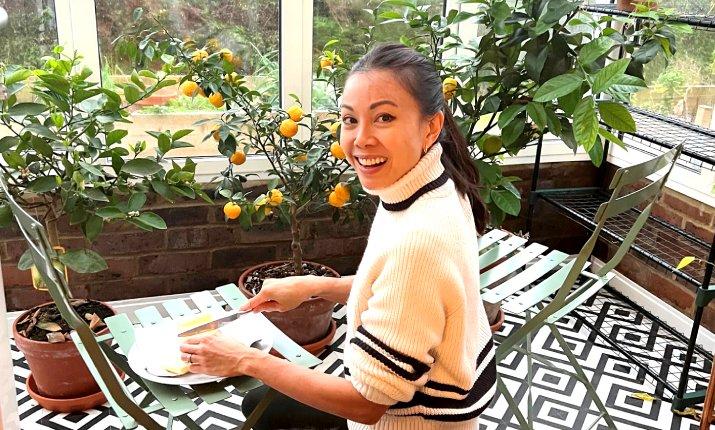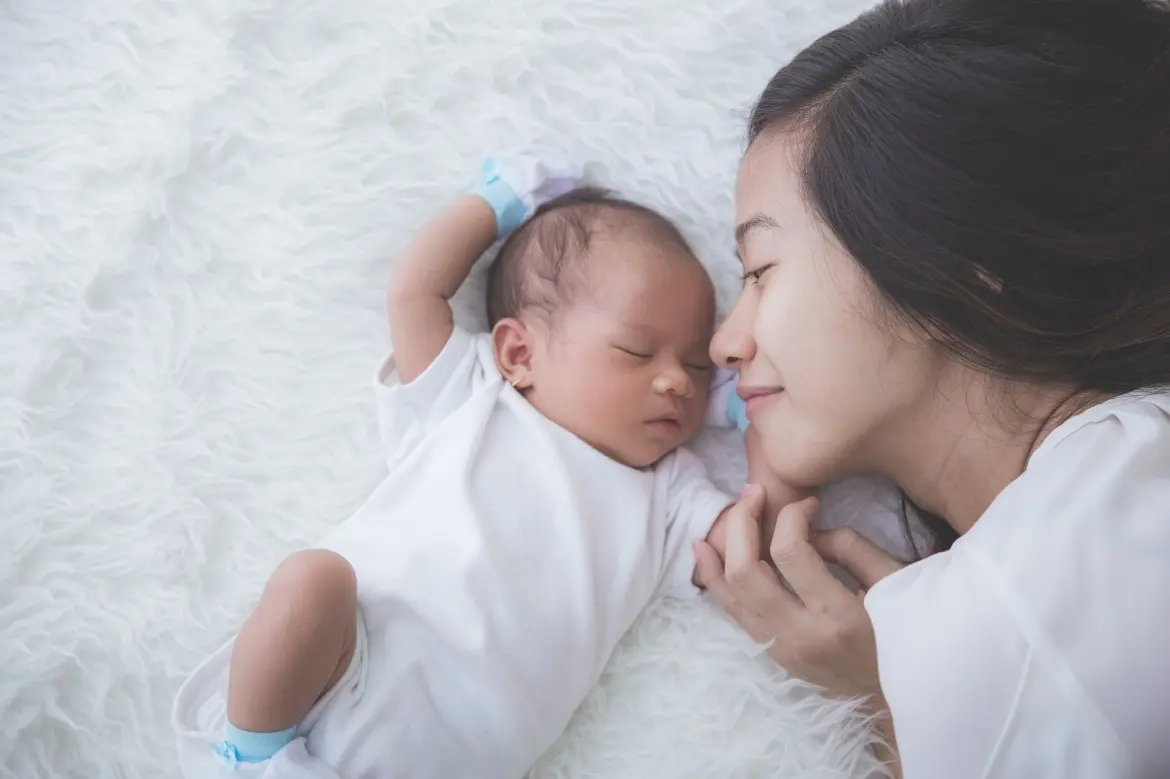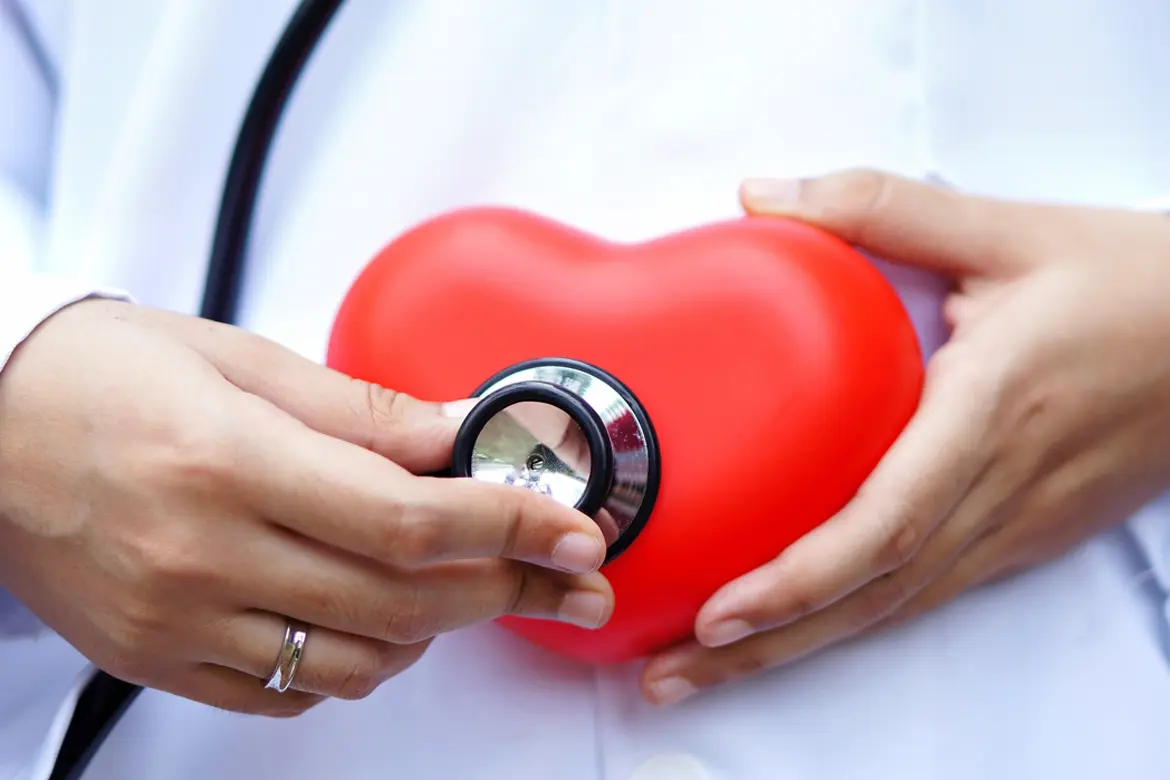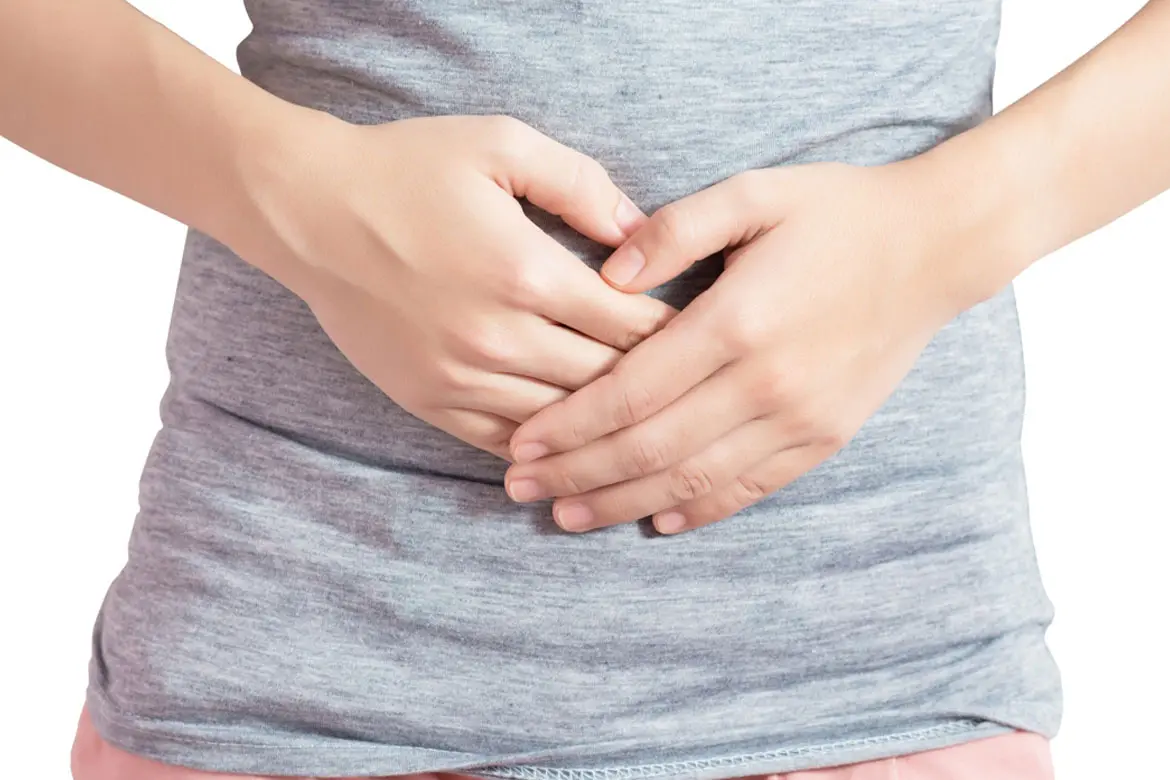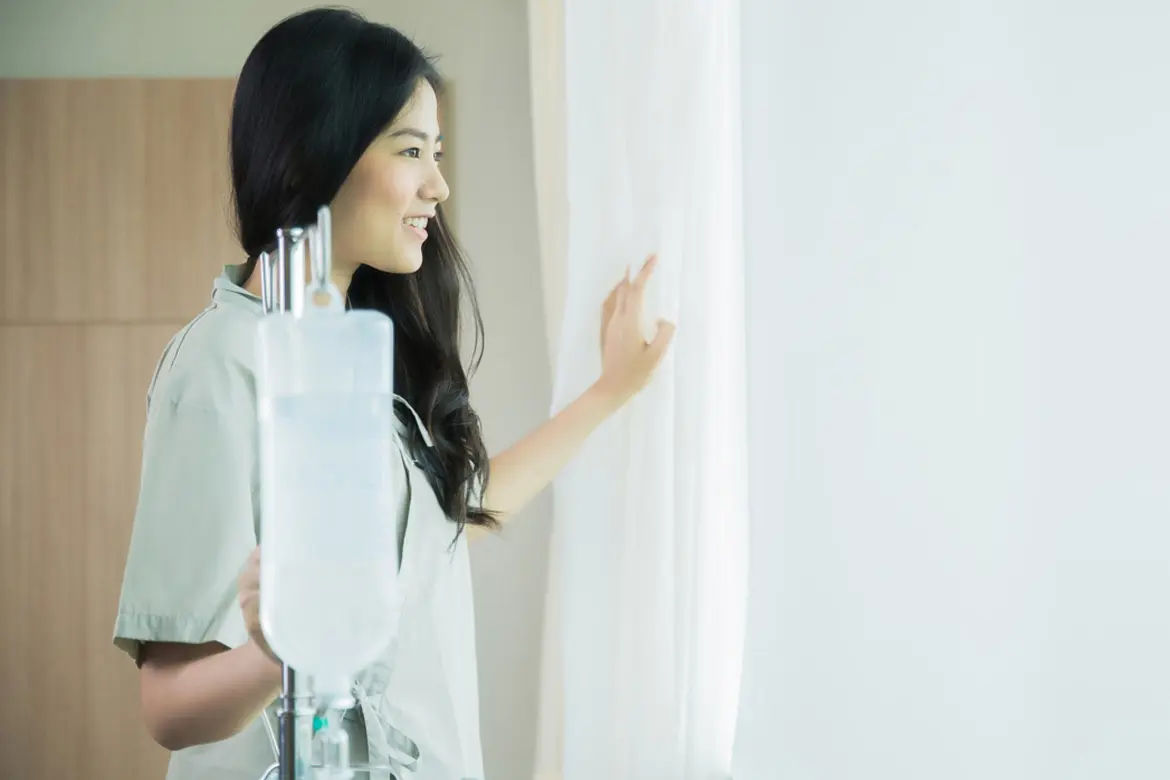-
-
Featured Care Areas

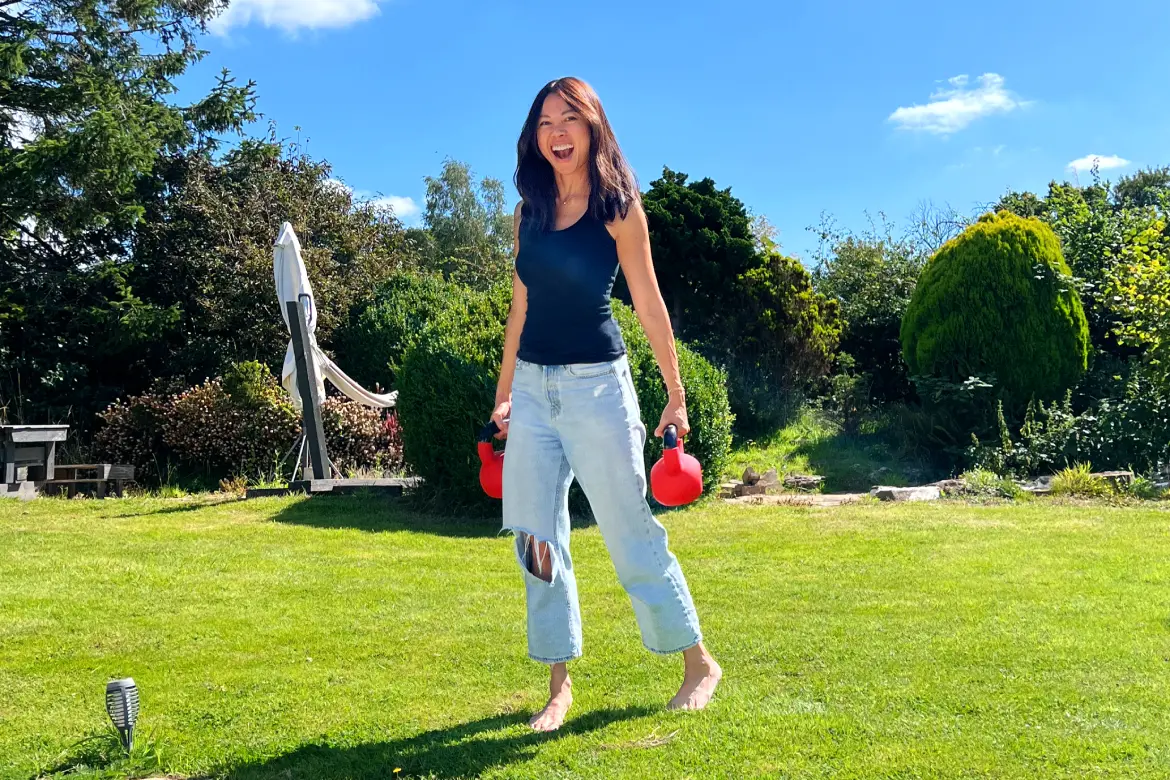
Source: Jamie Yeo
Strength and Support in the Face of Uncertainty: Jamie’s Journey
Last updated: Tuesday, January 30, 2024 | 5 min reading time
Jamie Yeo shares her unexpected journey through breast cancer from diagnosis to recovery, her newfound perspectives on life, and how she found care and support at Gleneagles Hospital in Singapore.
Jamie’s life, as she knew it, has always been a harmonious blend of family joy and entrepreneurial spirit.
As a mother of two and a jewellery business owner, the 46-year-old Singaporean, a former actress and radio presenter, now finds peace and contentment in her tranquil life with her husband and children in the UK.
An unforeseen turn, however, took her on a sudden and unexpected health challenge and journey.
"I found out I had breast cancer after a series of incidents," Jamie Yeo shares, recounting the day her life changed.
She discovered a breast lump and went for a health screening
A simple breast self-examination Jamie performed in 2021 led to a discovery of a breast lump.
While lumps are common and often benign, a subsequent health screening unveiled a truth more complex and daunting. The imaging scan revealed a breast lump that was irregular, a stark contrast to the typical smooth, oval-shaped benign tumours.
She visited a breast surgeon at Gleneagles Hospital, and subsequently went for a breast biopsy (a procedure to remove a sample of breast tissue for testing) and MRI.
The biopsy and MRI results turned out to be inconclusive, meaning there is no certainty there is cancer.
“I thought, okay, I don’t have it,” Jamie recalls. “I was really happy, and made the decision to take the tumour out as soon as possible.”
It was during the surgery for the removal, however, that the tumour was tested and confirmed by her doctors to be breast cancer.
“I just didn't know how to react… I was shocked,” she says. “But I was very relieved because at that point it had already been taken out.”
Seeking treatment in a place of comfort and familiarity
While navigating a rollercoaster of thoughts and emotions, and figuring out her next steps, Jamie decided to undergo a series of diagnoses and treatments at Gleneagles Hospital, a place she felt comfortable with and where she had her childbirth experiences.
It was here, under the care of a team of experienced healthcare professionals that included medical oncologist Dr Khoo Kei Siong, general surgeon Dr Bertha Woon, and radiation oncologist Dr Edward Yang, where she was recommended a personalised treatment plan for her cancer.
“When I first saw my oncologist, I felt a lot more relaxed because he was very reassuring about it.” Jamie recalls.
“He looked at my histology… and he was very calm. He said: Okay, prognosis is very good. Nothing to worry about. Why don't you just take some time out to heal? How is everything going? It was almost like I didn’t have cancer.”
A subsequent appointment with a radiation oncologist also helped to comfort her heart and allay her fears during the treatment process.
“He said: You’ve got nothing to worry about. We'll map out a plan for you. You just do this for 20 days and you're done. And after that, go take a holiday… I have to say that this bedside manner really helped me during that time.”
A month later after her surgery, under the advice of her doctors, Jamie went for 20 sessions of radiation therapy to target the affected area, and also began taking pills to block oestrogen from her body. And that was it.
The emotional journey of cancer… and searching for the why
Jamie’s encounter with cancer was not just a physical one.
"You kind of veer between both, you know?" she says, describing the pendulum of emotions she felt, especially during the diagnosis stage, from optimism to despair. “You pray and you're optimistic. And then, of course, your thoughts will turn dark, and you think of the worst case scenarios.”
She shares that the support of her husband, her faith, and the prayers of close friends, were her pillars of strength during this time.
“After you get the cancer, you also think to yourself: What caused it?” she says. “You want to know because you're analytical. You want to change it so you would never have it. But I spoke to my doctors… and one of my doctors who’s seen many cancer patients from all walks of life get cancer said that you can’t try to pinpoint what caused it.”
He said: Don’t stress about finding out what is stressing you or finding a reason. Just live your life… just be happy.”
Her advice for people concerned about cancer or health challenges
“Everybody should have at least a basic hospitalisation insurance plan because that really saved me,” Jamie says. “It makes a big difference when you want to focus solely on healing and being happy and trying to not be so stressed and worried.”
“The last thing you want to do is choose between your health and money.”
Her second piece of advice? To get your health checked, regularly.
“I can't emphasise enough how important it is to detect breast cancer early. And breast cancer is one of those cancers where you actually can detect early, by self-examination, or going for your mammograms and ultrasounds.”
She adds: “If I had detected my lump when it was a lot bigger, even though the tumour is not that aggressive, I still would have probably had to go for chemotherapy in addition to surgery and radiation therapy, because at a later stage, your recommended treatment will be different. But because I discovered it at an early stage, I could avoid that. That made a big difference to how I experienced the whole cancer journey and how I recovered from it.”
Finding new meaning in life after cancer
Image credit: Jamie Yeo
Through this experience, Jamie has also gained newfound perspectives on life, now prioritising living fully every day and treasuring time with her loved ones.
“Suddenly I knew what really mattered… and that is being with people you love and just living a meaningful life,” Jamie says. “You live each day just cherishing life and getting pleasure out of that day, you know?”
Jamie hopes to inspire and guide others who might be on a similar path.
Her advice is heartfelt and practical: get yourself checked, secure a good insurance plan, trust in the technology and expertise of medical professionals, and listen to your body.
The importance of early cancer screening
Cancer screening plays a crucial role in identifying and treating cancer at an early stage. In Singapore, breast cancer is the most common cancer among women, accounting for 29.7%* of cases. It is also a leading cause of cancer deaths in women in this region.
Fortunately, breast cancer can be effectively detected and treated early. Regular self-examinations and mammograms are key methods for early detection. But it's not only about breast cancer; screenings can also help spot other types of cancer such as colon and lung.
Catching cancer early generally leads to less aggressive treatment, a better chance of recovery, a lower risk of the cancer coming back, less severe treatment methods, and reduced healthcare expenses.
Learn more about breast cancer, common cancer types in Singapore, and cancer screenings you can go for to get yourself checked today.
* Source: Singapore Cancer Registry Annual Report 2021
The vital role of health insurance
One of the primary benefits of health insurance is the financial protection it offers against unexpected medical costs. Healthcare can be expensive, and without insurance, the burden of these costs can be overwhelming.
Having health insurance also means you can go for health check-ups and seek timely medical attention when needed. This proactive approach to health can lead to early detection and treatment of illnesses, which not only improves health outcomes but can also be more cost-effective in the long run. Early treatment often means less invasive procedures and shorter recovery times, which translates to lower overall healthcare costs.
Health insurance is not just a financial tool; it is an investment in your health and peace of mind. In a world where health is unpredictable, having a health insurance plan can be a prudent and necessary step for your future.
Learn more about health insurance and the different types of policies available in Singapore.
Mount Elizabeth Cancer Care: Possible Starts Today
At Mount Elizabeth, we provide comprehensive cancer care delivered by a compassionate and experienced team of general surgeons, medical oncologists, and radiation oncologists. If you're experiencing breast cancer symptoms or have any health concerns, we’re here to help.
Find a specialist